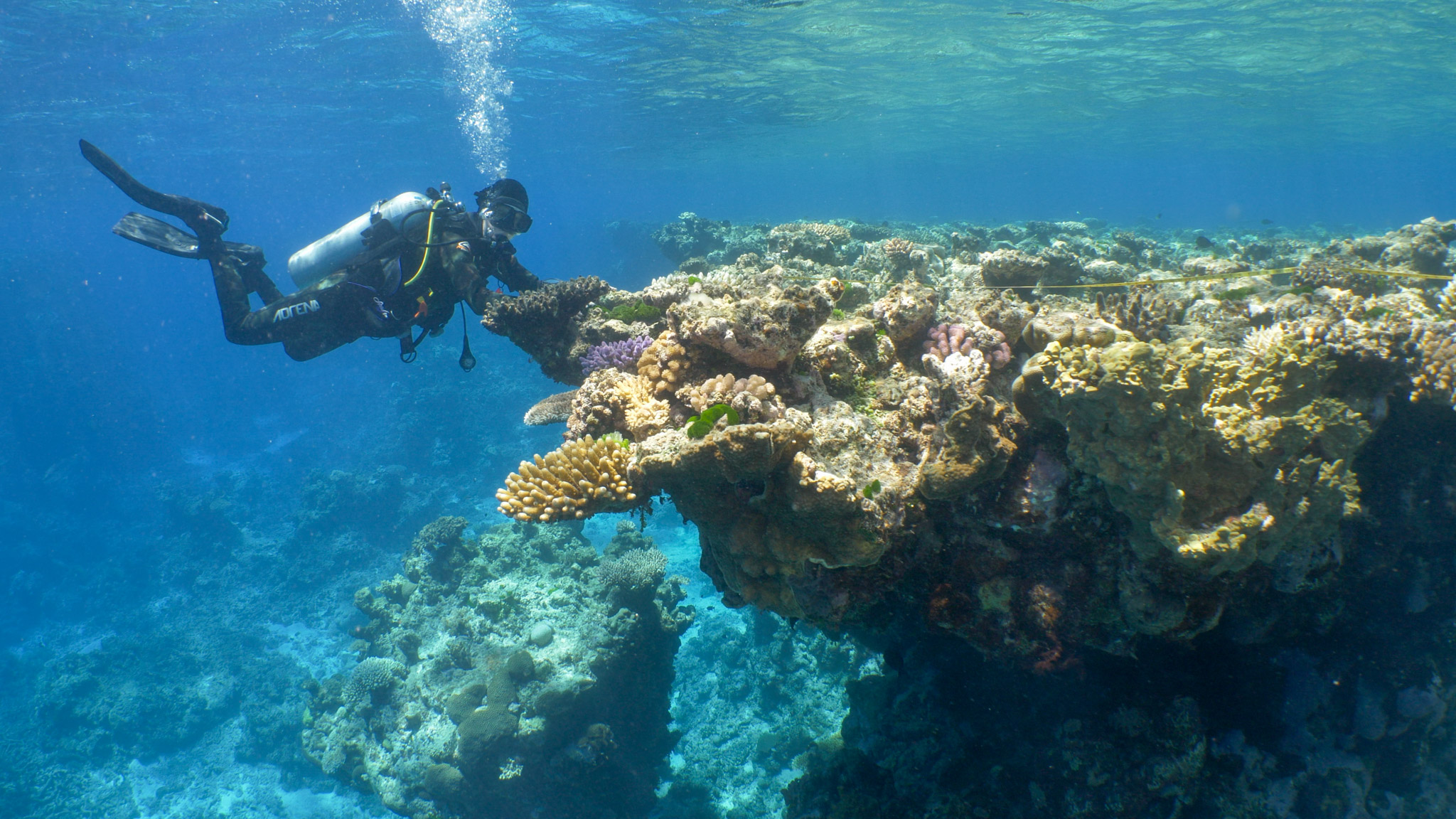It was a custom, according to some beginning with the mistake of Noah in sending the Dove out of the Ark before the water had abated, to send out some absurd message on 1st April each year, something misleading. A message that is not even hopeful, just absurd.
Traditionally, after the gullible begin to nod, the futile task is exposed, perhaps even before the perpetrator shouts ‘April Fools’.
The tradition doesn’t seem to be as popular as it used to be.
Perhaps because every day the mainstream media, even family and friends, now make absurd statements and send us on meaningless errands.
I laughed then I cried, when I heard a newly appointed senior manager at the Great Barrier Reef Marine Park Authority advocating for a low carbon economy.
Doesn’t she realize that what is visible from outer space of this massive reef ecosystem, that the Marine Park Authority is tasked with managing, is the sedimentary rock limestone. This is a vast deposit of carbon because the corals have been successfully hoarding it for some hundreds of thousands of years or at least during the interglacial warm periods. Yes. Hoarding it. The climate does change. As global temperatures increase, the biosphere expands, the Great Barrier Reef expands.
The Great Barrier Reef is arguably the largest coral reef system to have ever existed on planet Earth. A coral reef is layer upon layer of calcium carbonate. It is not pure carbon — it is not graphite or diamond — but it is about 12 percent carbon. For sure, carbon dioxide is produced and destroyed naturally near the Earth’s surface and by the oceans. Fixing it is more difficult, and mostly by biotic means the corals have managed this, especially at the Great Barrier Reef.
The joke is on us that every day in The West the managers, administrators and the politicians — those in positions of power — send us on meaningless errands and tell us nonsense, including about this seventh wonder of the world and including about carbon dioxide that is absolutely critical to life on Earth though it is only a tiny fraction of the atmosphere the corals have managed to hoard it.
****
Many thanks to everyone who participated in one or more of my Zoom sessions on Saturday – Saturday variously in Houston, Scotland and at the Great Barrier Reef. I will get a combined summary of the three meetings out, but in the meantime I have been somewhat distracted rereading an excellent new paper not yet published (still being edited) by Ivan Kennedy with myself as a coauthor, and thinking about the many gems in an already published paper by Philip Mulholland, you can find Philip’s work at Research Gate. While I have been thinking about how to extend the Kiehl and Trenberth (1997) global mean energy budget into something meaningful, Mulholland and Rathbone Wilde (2023) have already got on with the job, even if somewhat imperfectly.
For sure, in every session on Saturday there was some discussion about the limitations of temperature as a meaningful measure of the physical climate system and the importance of water, specifically global moisture.


 Jennifer Marohasy BSc PhD is a critical thinker with expertise in the scientific method.
Jennifer Marohasy BSc PhD is a critical thinker with expertise in the scientific method.

https://en.wikipedia.org/wiki/Science_Publishing_Group
“In an experiment, university business professor Fiona McQuarrie submitted an article to International Journal of Astrophysics and Space Science from Science Publishing Group, using pseudonyms “Maggie Simpson” and “Edna Krabappel” (characters from the cartoon series The Simpsons). Although the article had been generated by the SCIgen computer program and was nonsense, it was accepted for publication.[9] Librarian Jeffrey Beall, creator of a list of predatory open-access publishers, cites a nonsensical article in American Journal of Applied Mathematics, containing an alleged proof of Buddhist karma.”
I participated in the London Zoom meeting on 29th March 2025 and the most compelling result of the discussion between the gathered scientists and Jennifer Marohasy is that the science of climate is very far from being a settled science as is claimed by largely non-scientifically politicians trying to justify their anthropogenic cause of climate change.
‘ … the importance of water, specifically global moisture.’
A warmer world will produce more floods.
https://www.joannenova.com.au/2025/04/ancient-european-floods-were-much-worse-than-anything-in-the-last-century/
The Little Ice Age came late to the Southern Hemisphere and it was wet in eastern Australia.
‘As studied by Tibby et al. (2018), lake records from Victoria, New South Wales, and Queensland suggest that conditions in the east and the south-east of Australia were wet and unusually cool from the 16th to the early 19th centuries. That corresponds with the “peak” of the global Little Ice Age from 1594 to 1722.’ (wiki)
‘Researchers examining paleoflood evidence in the Pacific Northwest have found that ancient deluges during the last Ice Age were not just bigger, they were so massive that they make modern floods look like puddle-jumping.
‘In some cases, peak discharges exceeded 10 million cubic meters per second, compared to just tens of thousands for modern floods — including extreme ones like the 1993 Mississippi River flood.
‘Let’s be clear: these were natural events, happening 12,000 to 18,000 years ago, long before coal plants, internal combustion engines, or UN climate conferences.’ (wuwt)